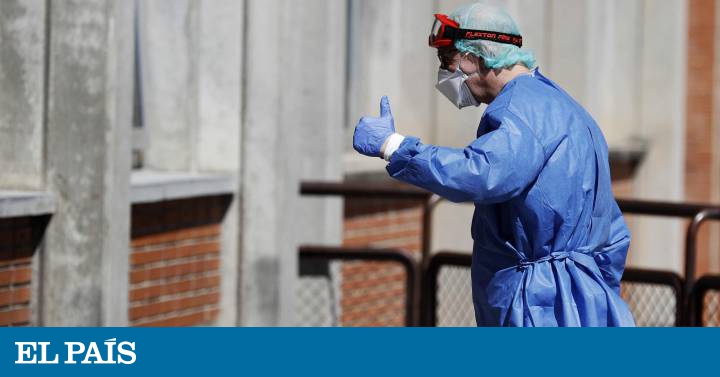Responding effectively and fairly to the gravity of an unprecedented pandemic for the millions of people who suffer it across the planet requires values (honesty, civility, solidarity), knowledge (science, humanities) and action (political, social and personal). . The ethical, political and economic ambition of the response concerns us all: institutions, social organizations, companies and citizens. And the trust between everyone should be as wide as possible; For a Latino culture like ours, trusting institutions is often a challenge. Let us calmly accept that we can all err, including scientists and politicians. In the coming months, maximum prudence, serenity and understanding.
Public health professionals who silently watch over the health of everyone, healthy and sick, and who constantly manage outbreaks and epidemics, know how to make decisions with imperfect, changing information, with gaps in knowledge (on exposure and individual immunity and collective to each pathogen, for example); and with the pressure of transmitting information, sometimes at an unfounded rate. It is not, therefore, honest to pontificate to a past bull, and least of all when before it was not argued what he now reproaches himself for not having done. We need less noise and more calm.
From politics there is a tendency to squeeze science - a bear hug - to subject it to its interests. Almost all politicians and other citizens are learning to listen to science, even when we are concerned about what it says. Meanwhile, supposed experts offer solutions without sufficient scientific basis and denying their own biases. The most regrettable examples are the unjustified claim to dismiss the management team of the Center for Health Alerts and Emergencies, the unscientific promotion of studies not evaluated in the existing technical spaces, and the subordination to partisan interests. In the current global and systemic crisis, many people and organizations are doing their best. Both in moral and technical terms. Thus, selecting quality information, coexisting with uncertainties, complying with standards, serene. Without manipulating technical issues of extreme relevance in a pandemic.
One of the lessons that we live again in this crisis, particularly from politics and from the health sciences, is that a loyal and autonomous collaboration between politicians and scientists is essential. This collaboration is taking place commendably (not perfectly) in Spain and many other places, and it is vital for measures as demanding as limiting the mobility of people to be valid, credible and effective; and for a time that will be long.
The best of politics, science and multiple professions is yielding to a level of social demand that we have never dealt with before, applying measures to contain the pandemic that test all the social structures and relationships in which we have lived until now. Measures that are hard for the daily life of many people, especially the most vulnerable. That is why we must adopt social and fiscal measures that protect them in a special way, with ambition.
As researchers and professors of public health, having some held positions of political responsibility, we give and seek maximum support to colleagues and public health institutions that day by day obtain and analyze, with common sense and sophisticated methods, the best possible information, and that they make recommendations for the adoption of the most effective measures. Decisions that correspond to the politicians: based on those recommendations, they have to gauge which ones are feasible at any time and place. Let's recognize that timing and sensitivities are important in politics. Self-criticism must be frequent and simple: many cultural, legal and economic issues have to be taken into account. Without this, it is not possible to achieve broad support. In this we are fortunately different from dictatorial societies.
Nor should we forget that the aforementioned professionals work precariously, without the adequate means and institutions to guarantee health security. One of the lessons of this crisis is that the General Public Health Law of 2011 cannot continue without development.
We must also rigorously and systematically evaluate the effects of the measures adopted, correcting what is necessary. For this, it is essential that the corresponding information is collected at this time.
Now, while looking into the eyes of the pandemic and its enormous impact, and accepting without resignation the imperfection of almost everything human, we can feel more pride and confidence than some recognize for how we have begun to face the crisis.
Fernando G. Benavides and Miquel Porta are university professors of public health, like the rest of the signatories: Ana M. García, Ildefonso Hernández, Consol Serra, Carlos Álvarez-Dardet, Xisca Sureda, Juan Alguacil, Esteve Fernández, Alberto Ruano , Vicente Ortún, Andreu Segura, Beatriz González and Francisco Bolúmar.
You can follow EL PAÍS Opinion on Facebook, Twitter or subscribe here to the Newsletter.

